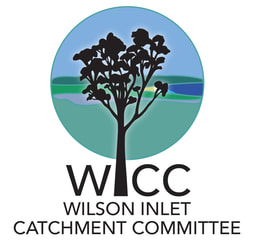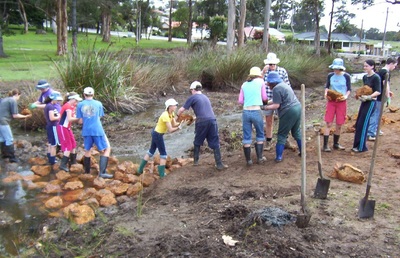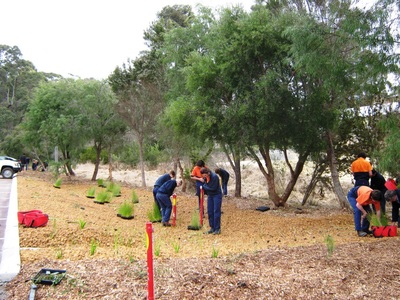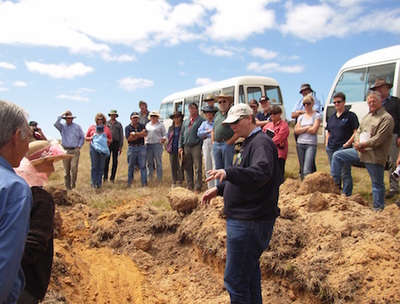Landcare
Excess nutrients can run off of agricultural lands and enter our creeks and rivers. These excess nutrients eventually find their way into our fragile estuaries where they can disrupt the natural nutrient cycle, resulting in an abundance of algae and plant material such as the sea grass rupia megacarpa. Due to the fact that only certain flora and fauna can tolerate these excess nutrients, that naturally occurring flora and fauna are not allowed to maintain their biodiversity.
At WICC we work to minimise nutrients added to our catchment and invest in programs which serve to remove excess nutrients before they can enter our waterways. By assisting farmers to carry out soil testing, soil amelioration and assisting with fertiliser choices and application we can minimise nutrients in our catchment and maximise farmers' profits. We also implement programs to minimise nutrient export into our waterways by funding native vegetation rehabilitation programs which act as a nutrient strip because the vegetation utilises much of the excess nutrients before they can run into our waterways.
Some landcare programs we are currently engaged in are soil acidity trials through lime applications, whole farm nutrient mapping and dung beetle trials.
At WICC we work to minimise nutrients added to our catchment and invest in programs which serve to remove excess nutrients before they can enter our waterways. By assisting farmers to carry out soil testing, soil amelioration and assisting with fertiliser choices and application we can minimise nutrients in our catchment and maximise farmers' profits. We also implement programs to minimise nutrient export into our waterways by funding native vegetation rehabilitation programs which act as a nutrient strip because the vegetation utilises much of the excess nutrients before they can run into our waterways.
Some landcare programs we are currently engaged in are soil acidity trials through lime applications, whole farm nutrient mapping and dung beetle trials.



